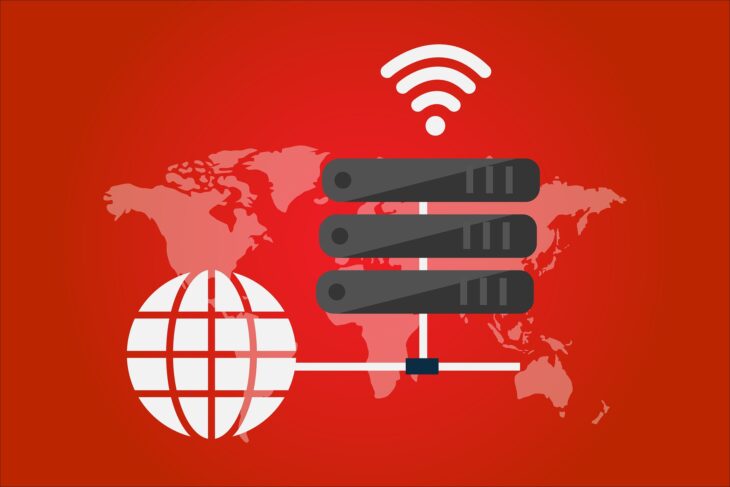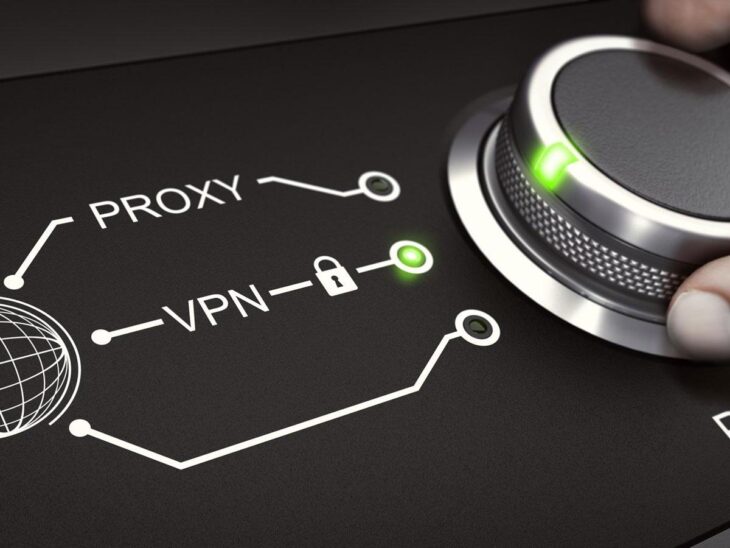During this time when everyone is concerned about their privacy, the prevention of online attacks or leakage of potential data has become a vital necessity. According to cybintsolutions.com, “64% of companies have experienced an online attack in 2019”.
Such alarming stats point out towards a secure solution to every online business. And this has paved the way for proxies and secured networking solutions. A proxy setting allows major search engine solutions to accommodate your data privacy.
Contents
What Is A Proxy?

Source: optimum7
Proxy is a channel opening between you and the internet. It is a gateway through which you can send or receive data via a secure online path. These gateways allow a user to surf the internet on a proxy server.
These servers send a request or a set of data into the internet traffic and search for the best possible results. Then, these requests clutter the traffic for the best possible result and come back on the unique IP address from which they were sent.
How Does It Work?

Source: techadvisor
Briefly explained, you already got the idea of how this particular type of network will work for you. Let’s assume your computer IP address as a postal address. It is unique and can trace back to your real location, anywhere in the world.
So, to perform a particular internet search that you or your company want to keep personal, you can use an anonymous address. The key role of this anonymity is to keep your identity hidden by sending out web requests on a secured level where it is made available to the internet.
Now, if you want results in return, which everybody aims for, you will get the best web page results on your screen via this private network. But such results will be more secure, encrypted and the data will be unreadable by any third-source hacker.
Why Should I Choose Proxy Servers?

Source: fineproxy
Back in the old days, proxy servers were used for providing a secured internet connection. However, as the number of threats has increased, so did their applications. Not only do they secure your connection, but they allow a massive usage for data readability.
1. Network Performance
Reported by many users, using a secure pathway for internet surfing increases the proportion of their internet speed. As most of the unusable data is cluttered out from the search results, the bandwidth connection is more fast and efficient.
2. Firewall and Security
The first and foremost advantage of having a secret server is the dual nature of internet surfing. Their usage ensures that your internet address is invisible to any outsider, who might want to swipe their hands on your data.
3. Restrict Certain Websites
Having an independent server restricts the visitation of certain websites. These websites are either restricted by the owner or from the portal itself. This point helps to narrow down the usage of websites for employees in a company or students who access the internet on school computers.
4. Access To Blocked Resources
Finally, if you have blocked some websites off of your server, you are doing great. But what about a website that is banned or unauthorized from your location but it is a dire need for it. So, what to do. Just hop in on a legit server and access the website.
5. Total Encryption
A platform like this allows you to hide your location from the source and provides you access to your data. These servers can act as a vault. This vault stores your IP address and allows it to jump onto a certain affirmed location for that particular website and brings you the results.
You can visit Blazing SEO and check their custom proxy servers to add various parameters to your business security. This includes monitoring of a server, providing a strong VPN, alert notification while a server attack, and total security of the data.
All of these loopholes are taken care of under great expertise and highly experienced data analysts. So if you’re starting a new business model for your online services, you should give them a try.

Source: fineproxy
So, coming back to the point, you now have the idea of how to keep your data secure and confidential. As there are multiple branches of a safe connection, such branches differ from one another. Majorly, there are 4 major types of proxy servers based on security and data encryption:
1. Transparent Proxy
Transparent is a private network that does not hide your IP address within a whole server. It shows your location and the requests sent by a user are easily detected by HTTP header protocols. If you want to use transparent proxies for website scraping, choose residential proxies – this type of proxies are blacklisted much less frequently. Click here for more information about residential proxies.
2. Anonymous Proxy
Anonymous is a great type of secure network which allows the invisibility of your IP address from any marketing-based website. This allows the prevention of sharing location or previous browsing history for an ad-sense.
3. Distorting proxy
A distorting proxy uses an HTTP header to hide your IP address under any surveillance. This type of proxy is used for high-security online meetings and the sharing of important/classified files.
4. High Anonymity proxy
This is the highest level of encryption that you could ask for. Neither your IP address is revealed to a third-party source nor is your presence is blipped on the proxy server.
Are There Any Risks In A Proxy Server?

Source: fineproxy
There are no risks in using a proxy. Meanwhile, we advise you to choose a paid private network. Free or open networking could be risky as they provide less encryption and more vulnerability to your data. Also, make sure your browsing history server logs are stored securely.
Amid the situations of censorship and Net Neutrality, Internet Service Providers have started to disorient network speed in many countries including India, the USA, and parts of Europe. While saying anything about the future would be uncertain, but having a private network could be a great solution to the issue.
